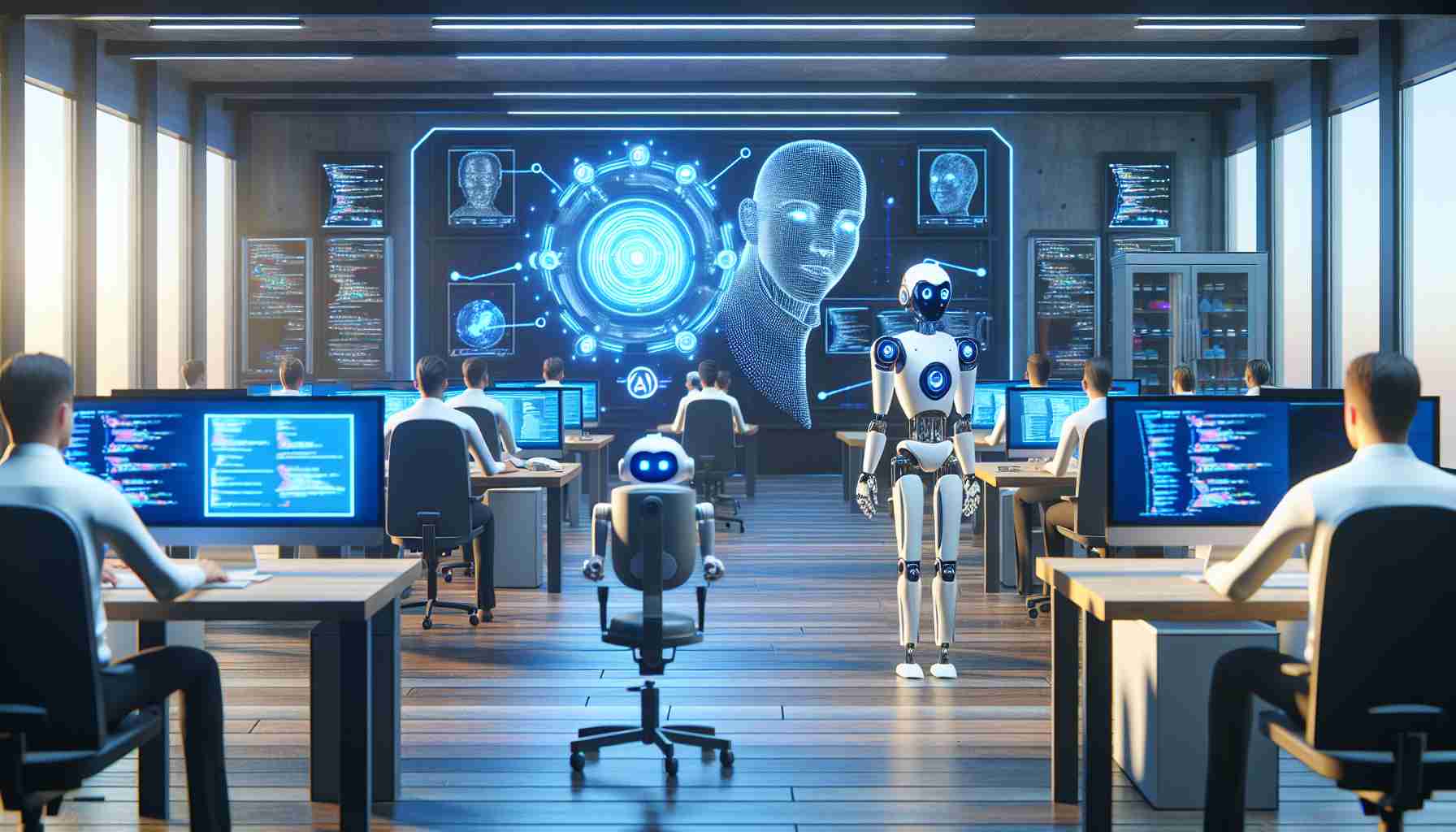In a recent earnings call, Google’s CEO Sundar Pichai highlighted a groundbreaking statistic: artificial intelligence contributes to the creation of over 25% of the new code for their products. This revelation underscores the transformative role AI tools are beginning to play in the software development landscape. While human programmers still oversee the code generated by these advanced algorithms, the integration of AI is touted for significantly enhancing productivity and speed, allowing engineers to achieve more in less time.
As a prominent player in this technological shift, Google isn’t alone; a 2024 Developer Survey from Stack Overflow shows that a majority of developers, over 75%, are utilizing or planning to adopt AI for coding assistance. Additionally, a separate survey from GitHub discovered that an astounding 92% of developers in the U.S. are currently employing AI tools for coding tasks.
However, this rapid evolution raises concerns about the long-term implications for human programming expertise. With AI assuming many coding responsibilities, there is a risk that the skills of human developers may decline. This potential shift could result in a challenging scenario where human engineers find it increasingly difficult to troubleshoot issues stemming from code created by AI, which itself may have originated from previous AI-generated outputs.
Despite these uncertainties, the momentum behind AI-assisted coding is undeniable, having surged since the launch of GitHub’s Copilot program in 2022, with numerous tech giants now unveiling their own AI coding tools.
The AI Revolution: Transforming Software Development at Google and Beyond
In the evolving landscape of technology, artificial intelligence (AI) is vastly reshaping the way software development is conducted, and Google’s activities serve as a prime example of this revolution. Beyond the impressive statistic shared by Sundar Pichai regarding AI contributing to 25% of new code, there are many additional dimensions to this transformation worthy of exploration.
Key Questions Surrounding AI in Development
1. **What specific AI tools is Google employing?**
Google has incorporated multiple AI-driven components, such as the TensorFlow machine learning framework and Google Cloud AutoML, which streamline the process of model training and deployment. These tools not only enhance code generation but also improve the accuracy of predictions and analytics in software development.
2. **How does AI impact software testing and debugging?**
AI advancements facilitate automated testing processes by generating tests based on code changes and learning from past testing data. This ability to self-learn from prior versions makes testing more efficient, though it also raises questions about the reliability of AI-generated test cases.
Challenges and Controversies
Despite the apparent benefits, the shift towards AI in coding is fraught with challenges. One significant concern is the **potential loss of jobs** in software engineering roles. Automation and AI capabilities may lead companies to reduce their workforce in favor of machine-driven solutions, particularly for routine coding tasks.
Another controversy lies in the **ethical implications of using AI** in coding practices. The output of AI can sometimes include biased perspectives, a reflection of the data it was trained on. Unequal representation in training data could inadvertently propagate stereotypes or exclude certain viewpoints, raising ethical questions about AI’s role in the development of inclusive technology.
Advantages of AI in Software Development
1. **Increased Efficiency**: AI can reduce the time taken to develop software by automating repetitive tasks, allowing developers to focus on more complex aspects of coding.
2. **Enhanced Innovation**: By relieving programmers from mundane tasks, AI fosters an environment conducive to creativity and innovation.
3. **Error Minimization**: Advanced AI algorithms can detect bugs and vulnerabilities in code more efficiently than human developers, potentially improving overall software quality.
Disadvantages of AI in Software Development
1. **Dependency on AI**: Over-reliance on AI tools may lead to skill degradation among developers, resulting in a workforce less capable of understanding or troubleshooting code.
2. **Quality Control**: While AI can handle bug detection, the accuracy of these solutions is not absolute. There remains a risk that AI may overlook significant issues in a codebase.
3. **Cost**: Implementing AI tools often requires significant investments in technology and training, which may not be feasible for all companies, particularly small startups.
Conclusion
As Google and other tech giants continue to embrace AI in software development, it is essential to navigate the accompanying challenges and ethical considerations thoughtfully. The collaboration between human expertise and AI capabilities holds significant promise for the future, but maintaining a balance will be crucial to ensuring both innovation and inclusivity.
For further information on this topic, you can visit Google’s main page.
The source of the article is from the blog qhubo.com.ni
